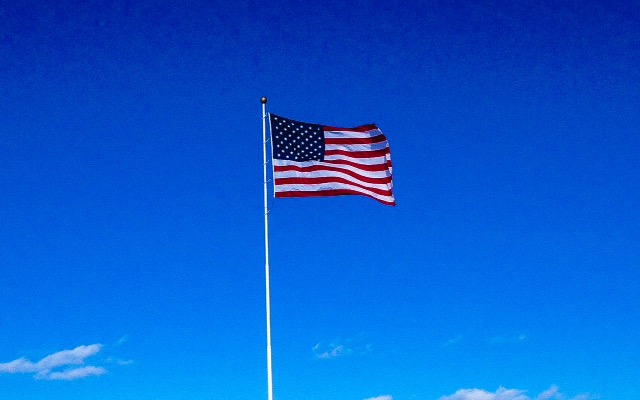You do not see them often but that’s because they don’t want you to, and they know how to hide.
They remain proud of their service to our country, but they are angry with our country.
They are our American veterans here in the Upper Ohio Valley who eat with what they are able to panhandle, sleep where they can stay dry, and far too often believe their only option is to take their own lives in the name of desperation. Nationally, 23 percent of the country’s homeless populations are American veterans, and 33 percent of the United States’ total homeless population is veterans, according to the Veterans Administration.
And a study conducted by the North Carolina-based Veteran Leadership Council revealed that an average of 22 veterans take their own lives per day.
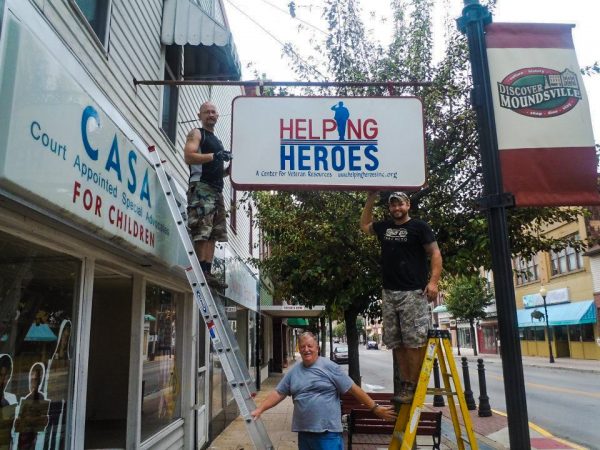
“If that sounds alarming, that’s because it is alarming,” said John Looney, a Vietnam-era veteran who has served as the Team Leader for the Wheeling Vet Center since 1989. “Those 22 veterans that are counted as suicides on a daily basis are more our older veterans than our younger veterans, but that’s not to say this issue is not affecting our comrades of all ages and both genders.
“In the Wheeling area, we probably have under 10 veterans who are homeless, but that doesn’t mean that’s all there are out there because the majority are living with friends, and they are couch surfing,” he continued. “The ones coming home now are having a lot of problems holding down a job, and many of them are getting divorces for a bunch of different reasons, and those things hit them hard because when they get out of their branch of the military, they are very proud. In far too many cases, that changes very quickly.”
Tammy Kruse, the development director for Youth Services System based in East Wheeling, said that staff members and volunteers do connect with veterans at the non-profit’s Winter Freeze Shelter between mid-December and mid-March.
“We had a lady who was staying with us at the Winter Freeze Shelter last year, but no one knew was a veterans until someone finally asked her,” said Kruse. “I knew I had a large file in my office from an event I attended up in Warwood at Workforce West Virginia, and I knew part of the focus of that event was to help our homeless veterans.
“That’s how we connected her with Helping Heroes, and a representative with that organization was working with her to get help with housing,” she continued. “Helping Heroes has a lot of different programs that can help connect our veterans with the organization they need to speak with when they find themselves in that situation.”
Kruse then encountered the same female veteran a little more than a month later.
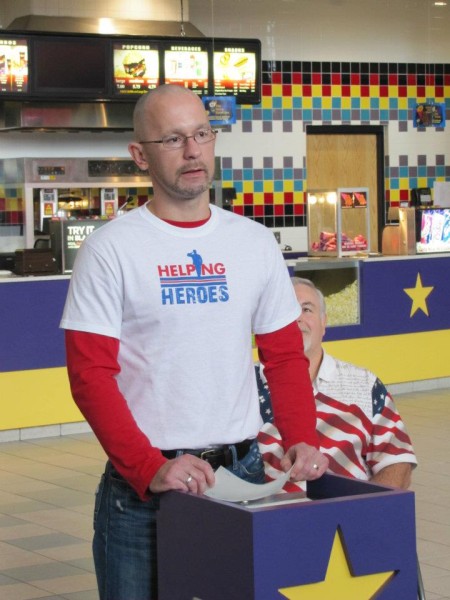
“She was all smiles,” she said. “She was proud to tell me that she had a place, her own pots and pans, towels, and she said she finally had food in her home. She couldn’t say thank you enough times.
“And that was all accomplished because I had that information to give to her and because the people at Helping Heroes really know what they can do to help our local veterans who are in very tough situations,” Kruse continued. “That organization has been a blessing to so many people because, yes, we do have a lot of veterans that come to the Winter Freeze Shelter, and we do everything we can to help them make the connections they need.”
The primary goal of Helping Heroes, a 501-c3, non-profit agency, is to assist homeless veterans and their families and veterans who may be struggling to avoid becoming homeless and to assist veterans in obtaining the benefits they deserve, according to co-founder Jeremy Harrison. Helping Heroes in the first agency of its kind in West Virginia.
Helping Heroes, Harrison explained, has consistently added service since he began working full-time in October 2013. Currently, the non-profit offers the following assistance:
- Financial Assistance to those who qualify
- Computer education classes
- Benefits assistance
- Interviewing skills
- Referrals to other agencies when needed
- Substance free, transitional housing to those in need
- Life skills courses
- Periodic Stand-downs
- Case management
- Legal aid
The organization’s website can be found at: http://www.helpingheroesinc.org/.
“When we find out that one of residents is a veteran, we try to have them immediately contact the folks at Helping Heroes because of their mission,” Kruse explained. “The first thing they have to want to do is help themselves, but that goes for everyone in a homeless situation. If they do not take the initial step, it’s not going to happen.
“Until they have that desire to make things better in their lives, there’s really nothing anyone else can do to help them,” she said. “And again, that goes across the board for everyone who finds themselves homeless or in need of life-sustaining goods and services.”
Post-Traumatic Stress Disorder is a common issue with veterans returning home from a combat theatre, according to Looney. The Wheeling Vet Center, in fact, has more than 150 open cases at this time, and many of them concern PTSD.
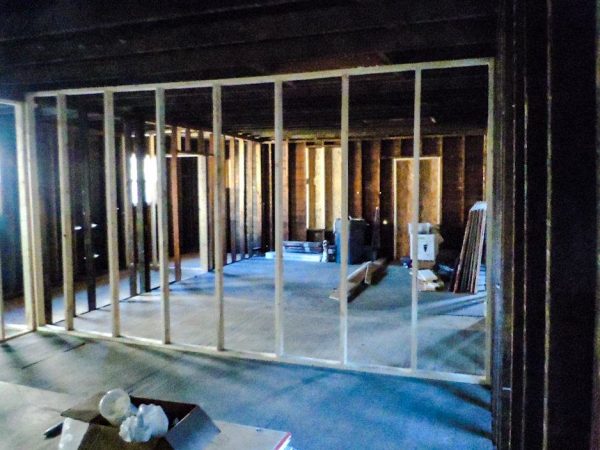
Kruse said she has encountered one such veteran, but she is unaware whether or not he was registered with the VA at the time the two met.
“I met this gentleman one day at the Mount De Chantal Kroger, and he was all soaking wet and standing just inside the doorway. I asked him if he was OK, and he explained that he was just trying to dry off before heading back outside. He told me that he was living inside the Louis Wetzel Cave,” she explained. “After speaking to him for a bit, I asked him what he needed. and he told that he just wanted to get dry and that he was just going to hang out there for a while.
“Then I saw him downtown not that long after, so I asked him how he doing. He told me that he was making it to the soup kitchen and to a couple of others places and that he was doing OK. That’s when I told him that our Winter Freeze Shelter was getting ready to open, and I suggested he come there to stay,” she recalled. “That’s when he told me that he can’t go to the shelter. He explained to me that he was suffering from PTSD and that he was afraid that he’d hurt someone if they woke him up.
“That’s why he was choosing to continue living in that cave. It’s the only place where he felt safe, and it was the only way he believed he could keep people safe from him and his illness,” Kruse added. “It broke my heart, so I offered him all of the information I had that concerned veterans assistance, but I have no idea if he went to get help from any of those organizations. I know that I haven’t seen him since that day.”
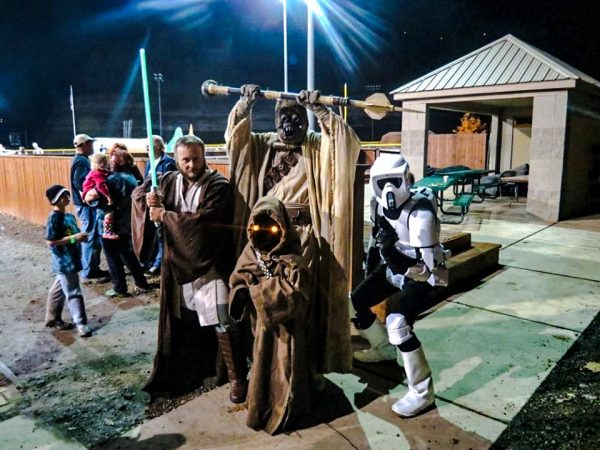
Looney said PTSD is often not explained and seldom handled well by those unfamiliar with the disorder.
“It is very common among our veterans, but it’s also very common that people who have not served have no idea how to deal with the individual,” he said. “Waking up a veteran who has live-combat experience can be a very tricky situation for someone who fails to recognize the condition. The best ways are to say their full names to wake them up or to touch one of their toes.
“No veteran has to be homeless like that man believes, but seeking the help is the problem, and most of them do not believe they should be in that position because of their service to our country,” Looney added. “One thing I can confirm is that veterans watch out for veterans. They trust each other, in most cases, and one will accept help from another.
“That’s what we do here every day and what many others are willing to do for them, too. They need to know that and the best way is for one veteran helping another veteran.”


